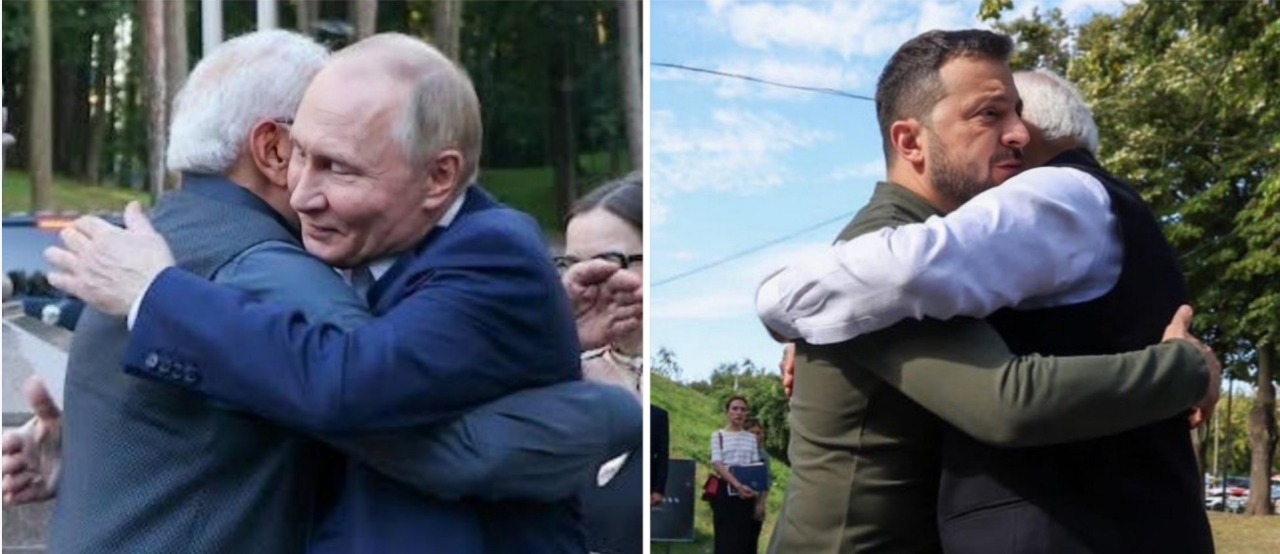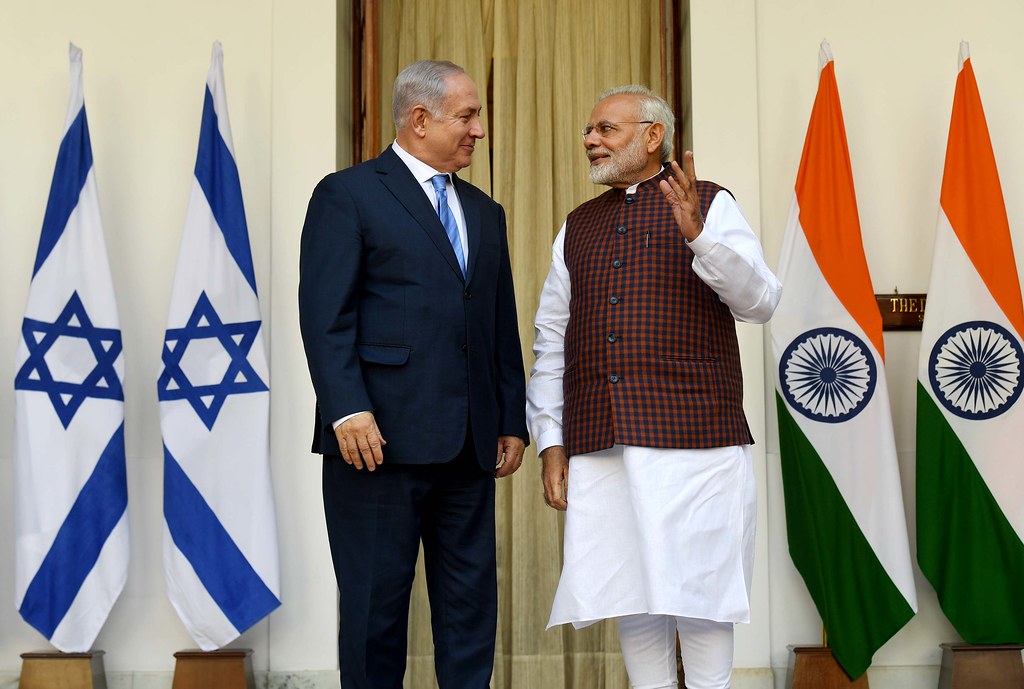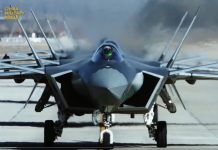India’s balancing act between strategic partnerships and global diplomacy has been on display as new conflicts hit the world.
As Iranian missiles strike Israel, Indian naval warships have been docked in the Iranian port of Bandar Abbas. Tehran is important to India as it not only provides India with a gateway to Central Asia but is also crucial to ensuring the safe passage of its energy imports through the Persian Gulf.
The Indian Navy announced on October 2 that its naval fleet comprising INS Tir, amphibious warship INS Shardul, and Indian Coast Guard’s Offshore Patrol Vessel reached the southern Iranian port city of Bandar Abbas. The Indian warships will conduct a joint naval drill in the Persian Gulf.
The exercise comes as Iran launched a barrage of about 200 missiles at Israel on October 1. The missiles were mostly shot down or missed their targets, escalating a Middle East conflict that now depends on whether and how Israel chooses to retaliate. The US is also deploying three additional aircraft squadrons – F-15E, F-16, and A-10 – in the Middle East.
To prevent this confrontation from escalating into a full-scale war, Indian Prime Minister Narendra Modi called his Israeli counterpart, Prime Minister Benjamin Netanyahu, and urged restraint and diplomatic solutions. India had categorized the October 7 attacks by Hamas as a “terrorist attack” and understood Israel’s need to respond.
India has good ties with the two countries embroiled in the latest active conflict. India entered a bilateral agreement with Israel in 2023 to send 100,000 Indian workers to the Jewish country as it faces a war shortage amid the war with Hamas. At the same time, New Delhi has also invested in the Chahbahar port in Iran.
In May 2024, after years of negotiations, New Delhi and Tehran signed a long-term contract to develop Chabahar Port. This paved the way for increasing Indian investment in the strategic port, which will serve as a vital trade route between India, Afghanistan, and other Central Asian countries. It will also strengthen India’s presence on a strategic route that is considered vital for India’s energy shipments from India to Europe.
This is the first visit of the Indian Navy’s training squadron to Iran. Earlier in 2024, Iranian training ships Bushehr and Tonb made a port call in Mumbai, and in February, Iran’s warship Dena participated in the Milan-24 naval exercises hosted by India in Visakhapatnam.

This development indicates the deftness with which India has been handling its foreign relations with different partners. As the Ukraine-Russia war raged on, New Delhi maintained ties with both Moscow and Kyiv. In the last few months, Prime Minister Modi has visited Russia, Ukraine, and the US in this order.
“Every nation pursues a foreign policy that suits its national interests. Right from becoming a champion of peace with her policy of ‘Non-Alignment’ to the present day ‘multi- alignment with strategic autonomy,’ Indian foreign policy has been pragmatic, progressive and resilient,” Major General Mandip Singh (retired), a distinguished fellow at the United Services Institution of India told the EurAsian Times.
The purchase of the Russian air defense system S-400 ‘Triumf’ led to Turkey’s exit from F-35 development. New Delhi has successfully inducted the long-range surface-to-air missiles while forging closer ties with the US. Amidst all this, New Delhi has not let go of Kyiv, a source of critical defense supplies.
While the world is worried about whether India could broker peace as the protracted war between Russia and Ukraine enters a third year, India also needs to ensure that the supply of spare parts for its predominant Soviet-origin platforms continues unabated.
“Recent wars in Europe and the Middle East have placed India in a unique position, one that has the respect and trust of all the affected parties. It allows India to play a key role in restoring peace and harmony in both these conflicts. More importantly, it places an onerous responsibility on India to become the voice of the global South on the international stage,” Major General Singh adds.
India Walks Diplomatic Tightrope
When Russia invaded Ukraine on February 24, New Delhi supported Kyiv’s humanitarian needs. But, New Delhi has abstained from condemning Moscow’s actions at the United Nations. This has been a consistent position that the administration of Prime Minister Narendra Modi says is in line with India’s foreign and defense policies.
Modi’s government has tried to be neutral in the war, which is now entering its third year, but its trade with Moscow has skyrocketed as it continues to buy discounted Russian oil despite Western efforts to boycott such energy purchases, whose revenues fund the conflict.

Now, India has been seeking closer relations with Ukraine through Modi’s visit to Kyiv, which was the first by an Indian head of state to Ukraine since diplomatic relations were established over 30 years ago when the European country achieved independence in 1991.
On October 1, Indian Foreign Affairs Minister S. Jaishankar confirmed that New Delhi was communicating with the two warring countries to resolve their issues. “I’m glad you used the word communication because I think at the moment perhaps (it) is the best description for what we are currently in terms of.”
The minister said that the communication lines were opened during Prime Minister Modi’s visit to Italy during G-7 and then during his visit to Moscow. After that, he visited Kyiv.
Following this, Indian National Security Advisor Ajit Doval went to Moscow, followed by Prime Minister Modi’s meeting with Zelensky in New York last week. Apart from this, Jaishankar and Doval kept talking to both sides.
Can India Replicate Balancing Act With Iran & Israel
The region will test the mettle of Indian diplomacy. India has forged partnerships with Gulf nations like Saudi Arabia and the UAE, which are crucial for investments and energy security. Initiatives like the India-Middle East Economic Corridor (IMECC) aim to enhance regional connectivity.
The I2U2 forum, involving India, Israel, the UAE, and the US, also faces hurdles as Arab countries reassess their public alliances amid rising tensions. The fallout from Israel’s actions in Gaza complicates India’s position, forcing it to navigate between supporting a historical ally and maintaining essential ties with Arab states.

When it comes to Iran, India is aware of Tehran’s stand on Kashmir. The country has been a source of 10 percent of India’s energy needs, but the tap was turned off following the US sanctions in 2019.
“Still, any conflict in the region does not augur well for India, which depends on 85% of its energy imports, much through the conflict-affected Persian Gulf. Our traditional relations with Iran could mitigate this threat,” Major General Singh added.
The strategically important Chabahar Port in Iran provides India access to landlocked Central Asia and Afghanistan, bypassing Pakistan. It is a key element in India’s regional connectivity strategy and provides the strategic depth it wants in Central Asia.
After its partition, India lost land access to Afghanistan and Central Asia, which Chabahar provided. The port is also important to keep growing Chinese influence in the “stans” for India as well as China’s development of the Gwadar port in Pakistan.




